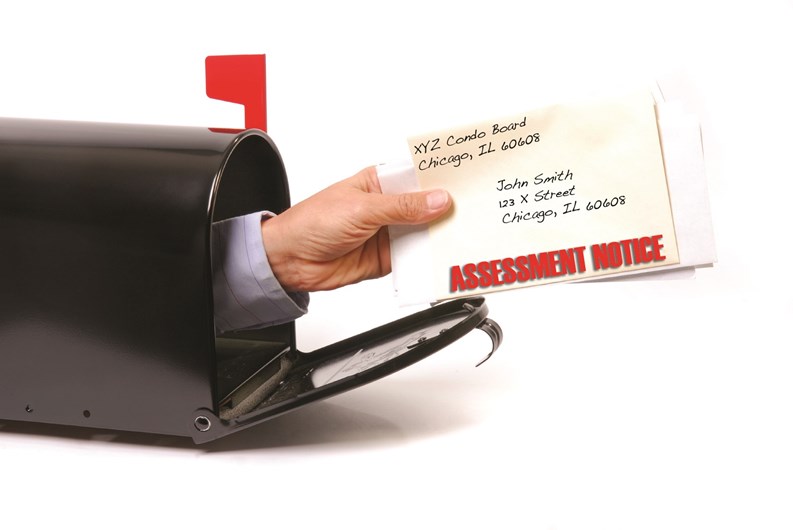Money is a topic people are often skittish about discussing—especially when the discussion involves rising fees, or having to pay more money for something. When you’re a board member or the property manager of a condo building or residential association however, there’s no benefit to skirting financial realities just because they may be difficult or contentious. On the contrary, not talking openly and candidly about a community’s financial picture, or the need for a special assessment or fee increase can have serious consequences for the entire community.
A Necessary Evil
Nobody likes fee increases or even one-time assessments—but both are periodically necessary in order to keep a community or building financially solvent. Ignoring or indefinitely postponing maintenance items or larger capital projects can lead to bigger expenses down the road, says David Sugar, a partner with Arnstein & Lehr, a Chicago-based law firm specializing in condominium and homeowner association law.
There are important distinctions between fee increases and assessments, however, Sugar continues. “Fundamentally, non-recurring expenses that aren’t in the budget should be done via special assessment,” he says, explaining that this is actually spelled out through a state statute, which says that any common expense not set forth in the budget should be funded through a special assessment.
That could include emergency situations like major storm damage, a sudden HVAC system breakdown, or a code violation of some sort that must be addressed ASAP. In such cases, the board has the power to impose an assessment unilaterally, without soliciting input from residents. According to Sugar, any assessment deemed necessary by the board and estimated to cost less than 15 percent of the association's annual budget can be enacted without unit owner approval and without the ability of the unit owners to veto the assessment after the fact.
However, Sugar says that according to Illinois state law, the key word is 'necessary.' A board does need unit owner approval if they want to do a special assessment for something non-essential—i.e., to build a new tennis court or to spruce up the building lobby.
Communication is Everything
Whether an assessment is for something pressing or for something aesthetic, any property manager worth his or her salt will tell you that clear, timely communication is one of the most crucial components when it comes to getting residents on board, says Fred Rodriguez, director of property management for Heil Heil Smart & Golee, LLC in Skokie. Even if it's not mandated by law, consulting residents as to whether they would prefer to raise monthly fees rather than be hit with one big lump-sum assessment can help soften the impact and reduce the likelihood of a challenge or veto. After all, people are more apt to be more cooperative if they feel they've been included in the decision-making process and not simply presented with a bill.
Managers stress that communication is key. Advance notice not only enables residents to plan their own budgets accordingly but also reduces the stress on both owners and administrators.
“Education, understanding and sympathy should be the modus operandi,” says one attorney who works regularly with condos and co-ops. “Owners deserve to know why the increase or assessment is necessary. The residents should receive a memo detailing what caused the increases—for example, an increase in oil costs, or an increase in taxes and insurance. The memo should start with a statement that the board understands that these are tough times, and should also demonstrate the board’s efforts to avoid the increase.”
Other Options
In addition to necessary, assessments themselves should be reasonable—and boards should be flexible enough to consider an array of options. “It’s important to find a way to make the special assessments realistic for owners,” says Gail Filkowski, CMCA, a property manager with American Community Management (ACM), located in Schaumburg. “Passing a special assessment that owners simply cannot pay only creates more problems for the association’s finances.”
If after much deliberation a board decides against a general maintenance increase or special assessment, there are other ways for Illinois homeowners associations to generate extra money. Popular strategies include charging late fees on unpaid maintenance, transfer fees for sales and leases, or rental fees for using common rooms or other facilities. Or perhaps, the project could be funded through a combination of a loan, use of some reserve funds and a small or moderate special assessment.
Howard Ellman, president of Riverwest Management in Chicago has explored alternative funding sources with some of the properties his firm works with. “Everything depends on the association and what amenities they have,” he says. “For example, I know some associations have negotiated deals with billboard manufacturers to use [signage] on their building to create revenue for the association. Or if they have extra parking spaces, they might consider leasing those spaces out for a day rate to the public.”
Another more drastic option is to scale back or even eliminate certain amenities in order to save money on their maintenance. According to Rodriguez, this is something of a nuclear option; if residents are promised certain amenities or perks upon buying into a condo or HOA, it's tricky business to eliminate those amenities without incurring resident wrath and possible legal trouble.
Still, it's not impossible—and sometimes it just makes good business sense. Rodriguez mentions a building in his company's portfolio that was advertised by the developer as having a 24-hour concierge service, which was certainly a nice amenity – but which was costing the building $160,000 annually.
“The suggestion was to scale it back, and have more of a security officer or desk agent who wouldn’t be there 24 hours a day,” Rodriguez says. While the residents missed the convenience of the concierge, they certainly didn't mind saving six figures and avoiding an assessment.
Get Real
Regardless of how the funds are raised, the important thing to remember is that while residents may love the idea of permanently low monthly fees and no assessments, and boards may be loath to make the unpopular decision to increase or assess, keeping charges artificially low is a recipe for disaster.
“Probably the most difficult issue is getting board members to separate their responsibilities to run the building with the desires of the shareholders and their personal issues,” says one accounting pro. “Getting them to focus on making decisions based on professional input and not the personal objectives of the most vocal residents is one of the most difficult issues to deal with.”
Even small maintenance issues, like a ripped lobby carpet or an ailing hedgerow that aren't fixed promptly can deteriorate to the point where the entire carpet or the whole hedge must be replaced at a greater cost than doing a little repair work, Rodriguez says. “If you don’t address the problem, it will eventually cost you more,” he says. It's up to the manager to encourage the board to adopt a realistic, break-even operating budget every year, and to be confident enough to tell it like it is when it comes to smart financial planning.
And the stakes are high. Things like façades and elevator inspections must be kept current and compliant with municipal and state codes; if they're not, the association may be issued a violation—which can eventually mean costly fines. Property managers warn that too many violations could cause problems for residents looking to sell or refinance their units. For that reason, assessments—however irksome they may be at the time—are actually insurance on the continuing value of units and the association itself.
According to Sugar, the other side to the coin is that there should really never be a reason to increase fees or level an assessment more than maybe once per year. More than that, and it could be an indication that the community is in need of a major financial intervention.
And again, this comes back to communication—between the board and management, and between the board-management team and residents—about the whys and wherefores of both fee increases and special assessments. Whatever the changes are—either assessment increases, special assessments or amenity changes—they should be presented to the unit owners so everyone understands why they’re necessary. It’s important to make sure information is accessible to homeowners so there are no secrets or surprises, experts say.
It's tempting for a board to cling to a strategy of spending as little as possible to preserve cash and keep fees low, but according to managers and financial pros alike, maintenance deferred too long and fees kept artificially low can backfire. Ultimately, it falls to the property manager to be straight with boards and residents and help them not only understand their immediate financial picture, but also the long-term financial health and well-being of their community as a whole.
Bernadette Marciniak is a freelance writer and a frequent contributor to The Chicagoland Cooperator.







Leave a Comment